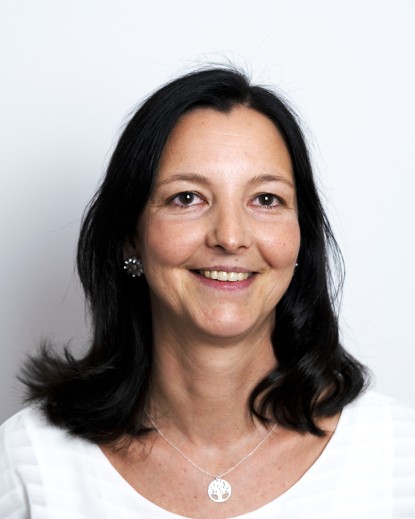Turbulent combustion
Properties of turbulent flames determine important features of practical combustion devices. In this research area we investigate the mutual coupling of turbulent flows with chemical reactions that strongly impact flame stability and primary pollutant formation. In this context, we are strongly involved with the International Workshop on Turbulent Flames (International Workshop on Measurement and Computation of Turbulent Nonpremixed Flames).
Flame-wall interactions
Practical combustion devices are enclosed by solid walls. Walls have a direct impact on the near-wall transport and chemical reaction processes. Considering the ongoing trend to higher power densities (down-sizing), the mutual coupling between wall, transport processes and chemical reactions is of increasing importance. In this research area thermochemical and fluid mechanical properties of near-all reactive flows are explored (SFB TRR 150).
Ignition processes and flame propagation
Ignition processes are distinguished in auto-ignition and induced ignition processes and may appear intended or un-intended. Ignition processes are of high relevance for fire safety and thermochemical energy converters such as IC engines or gas turbines. In this research area we presently focus on auto-ignition of gaseous and solid fuels under highly turbulent flow conditions.
Droplets and sprays
Droplet and spray dynamics is crucial for a variety of processes in energy and chemical engineering applications. Droplet dispersion in a turbulent flow field and droplet evaporation are determining local mixing with the surrounding gas. In this research area we investigate droplet and spray dynamics for trans- and supercritical thermodynamic conditions (SFB TRR 75).
Sustainable fuels
Combustion technologies are key-enabler for future mobility and energy systems. Fossil fuels increasingly will be replaced by fuels that origin from sustainable sources. An example for gaseous fuels is molecular hydrogen and for liquid fuels alcohols. Due to different chemical and physical properties, the demand for fuel flexibility triggers various scientific challenges. Starting with spectroscopic fundamentals, we investigate spectroscopic properties of sustainable fuels and intermediate species that are formed during the complex oxidation reactions. Furthermore, the influence of sustainable fuels on turbulence-chemistry interactions and flame structures is explored.
Combustion in reciprocating engines
Internal combustion engines form the basis of our mobility. Future improvements aim for more efficient combustion modes and lower pollutant emissions. Especially for fast load variations, emissions must comply with legal limits. In our research we aim for an improved understanding of highly dynamic in-cylinder flows, ignition, flame propagation, flame-wall interactions and pollutant formation. The analysis aims for disclosing the chain of cause and effect leading, for example, to cyclic variations. We organize the Darmstadt Engine Workshop (Engine Workshop ) as a forum to foster cooperation with scientists focusing on numerical simulation of in-cylinder processes.
Gas turbine combustion
Aviation and load flexible power generation relies on gas turbine combustion. Modern low-NOx combustors in combination with increasing power densities require efficient cooling of combustor walls. In this research area our focus is on the impact of effusion cooling on flow fields, temperature distributions and primary pollutant formation.
Solid fuel combustion
In the foreseeable future to a significant amount power generation will rely on solid fuel combustion. Examples for solid fuels are biomass, lignite or hard coal. Compared to sub-processes of gaseous combustion, the processes of devolatilization, ignition, volatile combustion and char burnout are not well understood. In this research area we develop diagnostic tools that are subsequently used to study fundamentals of solid combustion. Examples are volatile combustion of single coal particles or gas assisted solid fuel flames that mimic important features of real combustion plants SFB TRR 129
Industrial measurement technologies
Robust sensing is of utmost importance in monitoring and controlling processes operating at high temperature and high pressure. Optical techniques have a high potential for multi-parameter measurements in such harsh environments. Using optical fibres and optical devices based on semiconductor technologies, robust and minimal-invasive sensors are developed on the base of laser absorption spectroscopy that can be used in a variety of processes in energy and chemical engineering. Examples are sensors for monitoring emissions of diesel engines in real driving applications, water content in food packaging or gas composition in solid fuel combustion.
Development of measurement methods
We have developed an internationally recognized expertise in applied laser diagnostics. With regards to flow field measurements we utilize particle image and particle tracking velocimetry. This includes two- and three-component as well as planar and volumetric measurements. Often combined with qualitative scalar imaging such as laser-induced fluorescence, statistical analyses are regularly based on conditioning on specific features of the chemically reactive flows (such as the main reaction zone in combustion applications). Thermochemical states are analysed by multi-scalar measurements, such as one-dimensional Raman-Rayleigh imaging or combined coherent anti-Stokes and laser-induced fluorescence measurements. For wall-bounded flows we have developed phosphor thermometry as a powerful tool for measuring accurately and precisely surface temperatures. We not only adapt but develop new diagnostic techniques. Examples are super continuum laser absorption spectroscopy or simultaneous flow and temperature measurements using thermographic phosphor particles.























